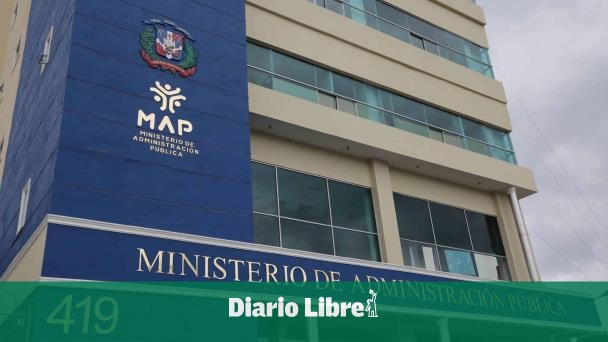The instruction of Ministry of Administration Public (map) to government entities to collect data that confirm the payment of services, such as electricity and water, has generated opponents who understand that it is contrary to the regulations of the public administration and defenders who ensure that the ordinance is an example of the transparency.
These contrary positions were expressed by figures such as Dario Castillo and Ramón Fortune Camejo, past holders of the governing body of public employment and the systems provided for by the Public Service Law.
Fortune Camejo, an official during the governments of the Dominican Liberation Party, asked the authorities of the map reject the measure. “It is not possible to establish that type of pressure, which affects dignity and at the same time Constitution with fundamental rights,” he indicated.
Regarding the motivations of the map for the issuance of the circular 018031, as the commitment of the government with the fulfillment of the obligations required of citizens, Fortune Camejo pointed out that this aspect, in addition to discipline and responsibility, is governed by local regulations and international agreements, “which have been ignored,” such as the Ibero-American Charter of the Public Service.
He highlighted that this institution has standards that address the responsibilities general of the servers public, competency evaluation and disciplinary ethical regulations. In the latter “prohibitions would enter, but never in those demands that they want to raise today.”
For the former head, the provision violates the progress that has been achieved in the relationship between servers public and authorities, both political and technical.
An example of transparency
For the former minister Dario Castillo, the measure is part of the actions of the government to guarantee the transparency and that the servers Public officials “are called upon to demonstrate to the country that they comply with all regulations. I don’t see any drawbacks to that (the circular)”.
He remembered that the Ministry is the rector of public employment “and if any institution of public administration requires that the map contribute to achieving some information of the serversbecause it is the most effective way.”
However, the current coordinator of the Commission for State Reforms considers that there are more effective ways to collect information such as those cited in the ordinance.
“I think that by crossing the public payroll with the Edes (Electricity Distribution Companies) and the Caasd (Aqueduct and Sewer Corporation) the servers publics who have accounts and how their payment situation is, it is faster and more effective,” he indicated.
They fear that order will generate insecurity
In the opinion of the president of the National Confederation of Trade Union Unity (CNUS), Rafael (Pepe) Abreu, the provision of the Ministry of Administration public could generate tension and insecurity among the employees of that sector.
The union member maintained that, although he understands that in the country “there is no culture of payment for services”, the map should have started with a training process for employees “and then establish or seek a commitment that the servers public, as an example to other citizens, comply with their obligations.”
“What they should do is give the service and be efficient with the collection,” added the head of the CNUS, while maintaining that pressing with this action “the only thing it causes is annoyance, it results in an upset that is not necessary to give to the Dominican population who are in a stage of certain apprehension , which is dealing with prices and the cost of living.”
What the circular of the map
He Ministry indicated that, within a period of 15 days, the human resources departments must compile the information regarding whether the servers publics have electricity and electricity contracts service of drinking water, and if they do not have it in their name, they must specify who in their family is responsible. Last week, the ministers of the Presidency, José Ignacio Paliza, and Administration Public, Sigmund Freund, defended the circular. Paliza said that, just as the Government requires citizens to pay for public services, officials must set an example by honoring these commitments. “Discipline comes at home, and it is the commitment of the government “always set an example in fulfilling the obligations required of citizens,” explained the head of the governing entity of public administration.

















